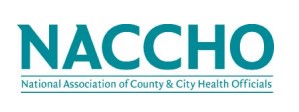January 27, 2026

Missouri Department of Health and Senior Services Recall Alert
Abbott has initiated a medical device correction for certain FreeStyle Libre 3 and Free
Style Libre 3 Plus sensors in the United States after internal testing determined that some sensors may provide incorrect low glucose readings.
If undetected, incorrect low glucose readings over an extended period may lead to incorrect treatment decisions for people living with diabetes, such as excessive carbohydrate intake or skipping or delaying insulin doses. These decisions may pose serious health risks, including potential injury or death, or other less serious complications.
Abbott has identified and resolved the cause of the issue, which relates to one production line among several that make Libre 3 and Libre 3 Plus sensors to fulfill replacement and new orders and does not expect significant supply disruptions.
This action involves approximately 3 million Libre 3 and Libre 3 Plus sensors in the U.S. from that production line, about half of which are estimated to have expired or been used. Globally, Abbott has received reports of 736 severe events (57 in the U.S.) and seven deaths (none in the U.S.) potentially associated with this issue.
Important Instructions for People Using Libre 3 or Libre 3 Plus Sensors:
- Consumers should visit https://www.freestylecheck.com/us-en/home.html to confirm whether their sensor is potentially affected by this medical device correction.
- If consumers are currently wearing or have a sensor that has been confirmed as potentially impacted on https://www.freestylecheck.com/us-en/home.html or by a customer service representative, they should immediately discontinue use and dispose of it.
- Consumers should use a blood glucose meter or the built-in meter in the FreeStyle Libre 3 reader to make treatment decisions when sensor readings don’t match symptoms or expectations.
- To learn more or get help with questions, visit https://www.fda.gov/about-fda/website-policies/website-disclaimer or call Abbott’s customer service at 1-833-815-4273, available seven days a week from 8 a.m. to 8 p.m. Eastern Time.
- FreeStyle Libre 3 readers and mobile apps are not impacted.
- Additionally, no other Libre products (FreeStyle Libre 14 day, FreeStyle Libre 2, FreeStyle Libre 2 Plus, or Libre Pro sensors) or Abbott biowearables are impacted.
Abbott is issuing this medical device correction in other affected countries where Libre 3 and Libre 3 Plus sensors are distributed.
Consumers in other countries can also visit https://www.freestylecheck.com/us-en/home.html for more information.








